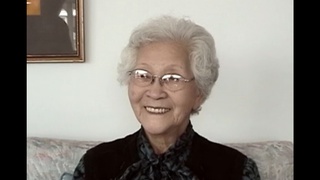Interviews
President Fujimori as elected by Peru's general public (Japanese)
(Japanese) The people who chose Mr. Fujimori were not Nikkei. I think this is rather strange. People who chose Mr. Fujimori as President were the Peru’s general public, especially the native people in the outskirts who were central to his election. The people in society who were decidedly not benefiting from the existing political parties, the existing politicians, or the existing class establishment, had declared their protest, and were, to be honest, not dyed with any particular political colors. And then, there was the image of Nikkei as hard workers. During the President’s campaign, Fujimori took full advantage of its image and he emphasized himself as Nikkei. The diligence and honesty of the Japanese people were set forth as the banner of the campaign. He managed to get their vote—of course he got that vote.
Date: May 7, 2007
Location: California, US
Interviewer: Yoko Nishimura
Contributed by: Watase Media Arts Center, Japanese American National Museum








